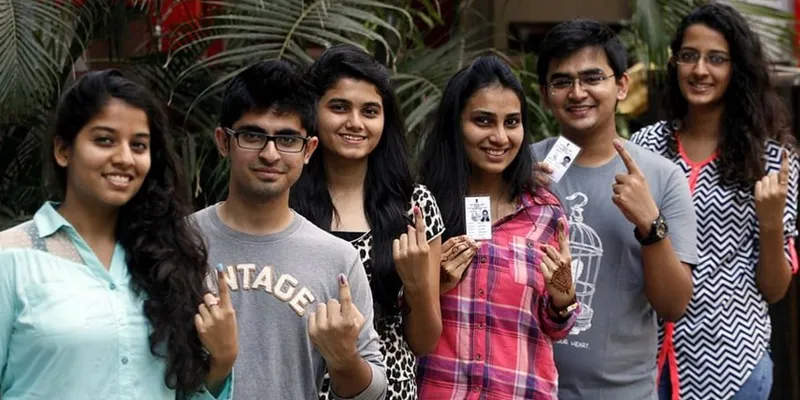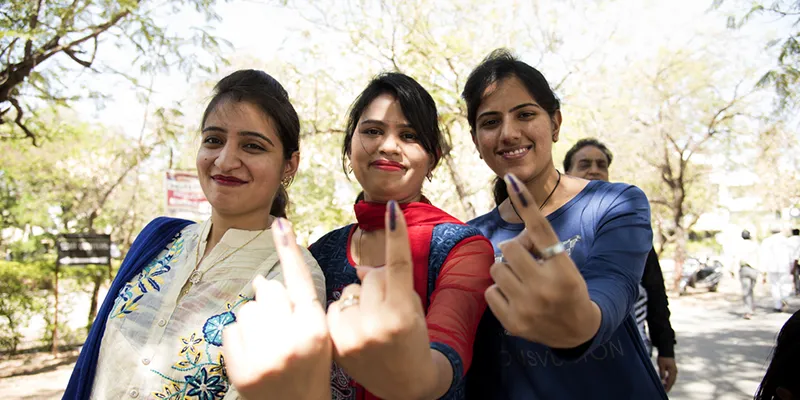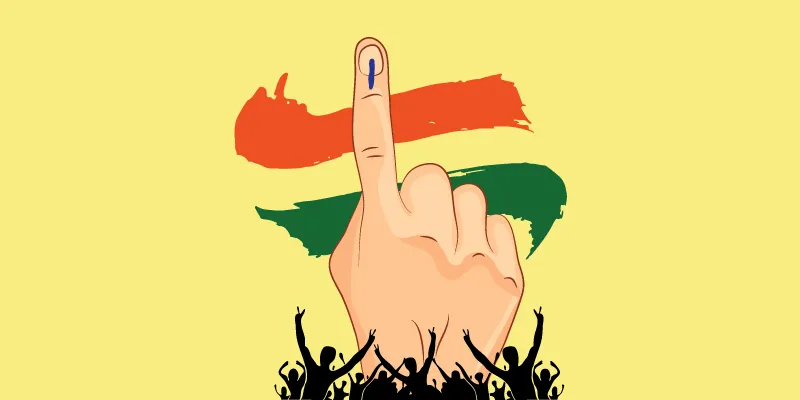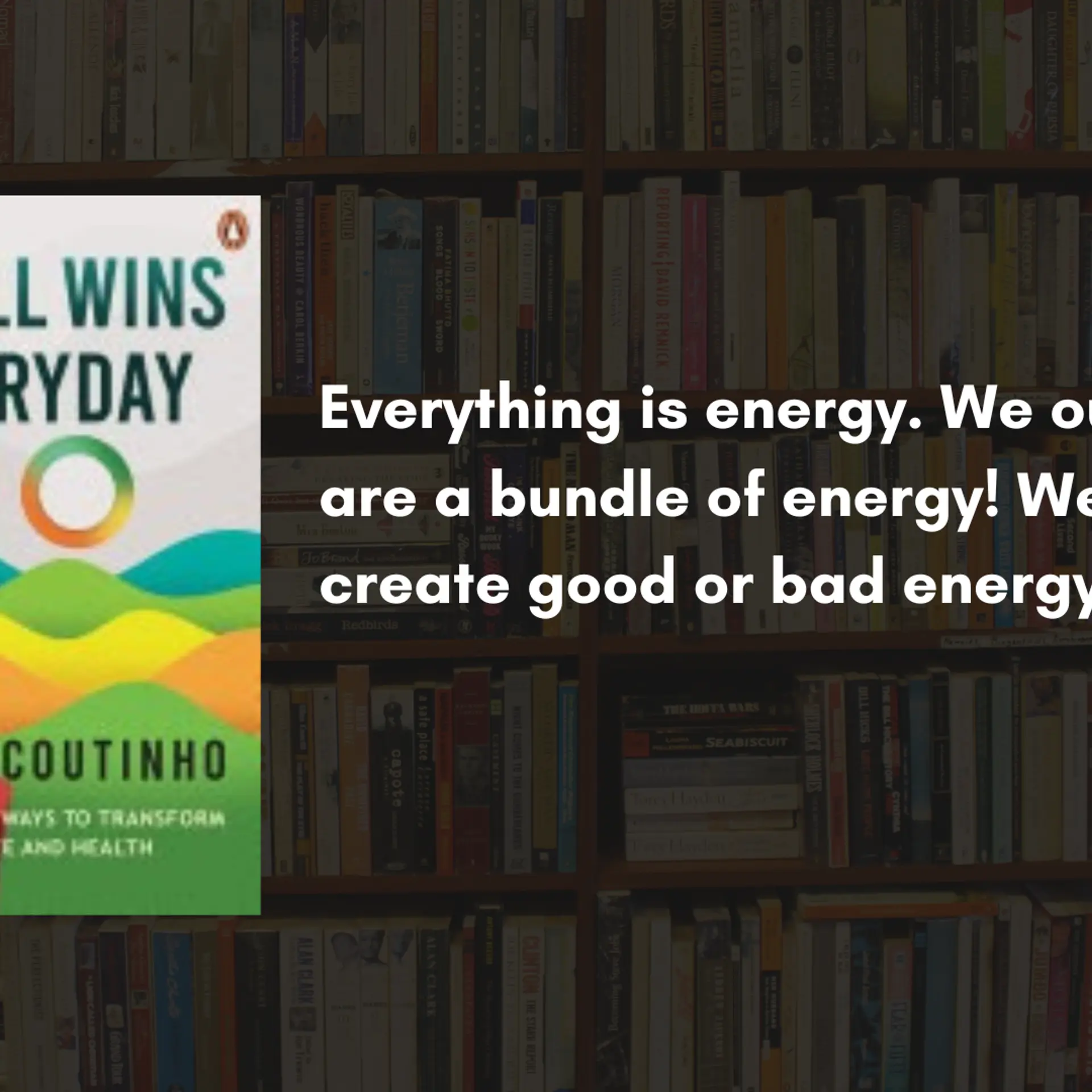Elections 2019: First-time voters have great expectations, say need clean and fair governance
Nearly 15 million Indians are said to have voted for the first time this year. With issues ranging from women’s safety to more jobs, the Gen Z voters have a long list of expectations from the newly-elected government.
By 2020, India is poised to become the youngest country in the world with an average age of 29 years. As we face this demographic shift, India is looking at a gigantic workforce.
To put this reality into perspective, reports suggest that almost 64 percent of the country’s population will be in the working age group in the next one year, a figure that is only set to rise, with the country emerging to have the world’s largest workforce by 2027.

15 million are said to be first-time voters in the 18-19 age group.
This essentially means that as opposed to the ageing nations across the world – China, Japan, the US, and Europe – India is looking at a young demographic in the future. A demographic, which is about to join the country’s massive workforce, will take part in policy-making, and become a part of the electorate. In fact, the demographic transformation already seems to be making its impact felt in the government-making process.
Ahead of the 2019 General Elections, the Election Commission of India pegged the total number of registered voters at 900 million. Of this, 15 million are said to be first-time voters in the 18-19 age group.
According to the Election Commission (EC), the voter turnout for the 2019 elections was the highest ever, with a record 67.11 percent turnout, as compared to the 66.40 percent in 2014.
No wonder then, ever since EC rolled out its election schedule, major political parties have been bending over backwards to woo the Generation Z.
Realising the growing impact of India’s Gen Z, even Prime Minister Narendra Modi urged the new voters early this year saying: “I particularly call upon first-time voters to vote in record numbers.”
Born in the age of the internet and growing up with smartphones and social media, the youth have a major role to play in deciding the country’s future.
About six weeks later, after polls panning across seven phases between April 11 and May 23, young India has voted for what it wants. And their concerns, oddly enough, are not completely new.
What the youth want
According to B.PAC (Bangalore Political Action Committee), a non-partisan citizen’s group that aims to improve governance in Bengaluru, while the total voter turnout in Bangalore Urban (54.2 percent) is lower than 2014 Lok Sabha elections, the absolute number of voters has increased by 4,00,000 during this period.
Interestingly, the 2019 elections witnessed an increased participation of women voters, which helped close the gender gap.
Another trend that was observed was West Bengal recorded the highest number of first-time voters in the country. Reports suggest that more than 20.6 lakh youngsters, especially in the age group of 18 -20 years, voted in West Bengal, followed by 20.3 lakh in Rajasthan, 16.7 lakh in Uttar Pradesh, 13.6 lakh in Madhya Pradesh, and 11.9 lakh in Maharashtra.

The 2019 elections witnessed an increased participation of women voters
Also read: What does the startup community expect from the next Prime Minister?
According to a recent survey conducted by Firstpost, around 55 percent of the youngsters in 18-21 age group had a clear intention to vote in the Lok Sabha polls. In addition, around 40 percent of the respondents said that ideology is the factor that they like to consider while voting.
Evidently, this internet-savvy generation is not holding back when it comes to voicing their concerns through social media, surveys, and online participation in election-related studies.
Some of their top concerns are the lack of job opportunities, issues of women’s safety, a need for clean and fair governance, and rural development.
However, a key issue for this electorate is Prime Minister Narendra Modi’s failure to deliver on his promise of creating 10 million jobs a year - a pledge that won him the hearts of India’s youth in the 2014 elections.
Statistics by a DownToEarth report suggest that over 30 percent of India’s youth are unemployed, and they aren’t even going to school. This is why issues relating to job creation and higher education unsurprisingly take centre stage.
As it turns out, the country’s expenditure in the department of higher education, as part of its total budget, has remained more or less the same – at around 1.47 percent over 12 years to 2018-19, according to a report by Indiaspend.
From previous interactions with the young voters, YourStory found that most of the millennial voters expect the new government to revamp the current education system. They want the government to encourage the education institutes to collaborate closely with domestic and international institutes. This is expected to churn out more employment opportunities.

The voter turnout for the 2019 elections was the highest ever, with a record 67.11 percent turnout, as compared to the 66.40 in 2014.
Moreover, the young electorate is also stressing on the need for simple financial policies. They want taxation relaxation for the middle-class population. Apart from finance-related concerns, the new voters are also voicing their concerns surrounding the Freedom of Speech.
“India should be a country where there is value for talent and high scope for research,” says 21-year-old Barnak Mukherjee, a BTech student from Durgapur.
Shinjon Chatterjee, a 23-year-old student of ISI Kolkata believes there should be a system of electoral bonds that establish transparency and taxing party incomes that go too high.
Whether it is about the recognition of LGBTQIA+ community or ensuring women’s safety, the youth wants the government to hear them out.
Gen Z is speaking – are the political parties listening?
We realised that our findings – based on previous YourStory reports, a host of online surveys and analysis done by other organisations – coincide with the reports of Yuvaa, a youth media organisation, which found that the top issues troubling young voters was women's safety and empowerment, followed by communal politics, violence, and corruption.
Yuvaa had carried out an extensive youth survey (focusing on Gen Z in the age group of 18-23) in partnership with InUth.
“We went to 25 cities, 65+ colleges, and met thousands of students over a period of three months,” says Nikhil Taneja, Co-founder and CEO, Yuvaa. Outlining the broader implications of the voices and concerns of the youth, he adds,
“The manifestos of all major parties don’t think of youth beyond employment, whereas there are so many other issues plaguing them. We need to listen to understand and engage with young India, to ascertain a bright future for India.”
India’s first-time voters are informed. They know what the political parties are promising and have gone through the manifestos. But these digital natives have a unique set of demands. And we only hope the political parties and leadership aspirants are listening.
Also read: Elections 2019: India's youth is talking; will the political class listen?







